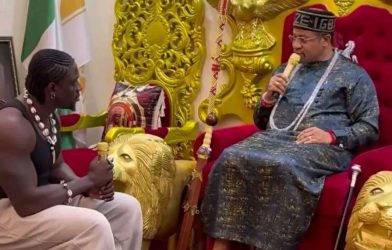Human rights activist and former presidential candidate Omoyele Sowore has rejected the Department of State Security Services’ (DSS) demand to retract a social media post criticizing President Bola Ahmed Tinubu. In a scathing response, Sowore accused the DSS of acting beyond its mandate and displaying repressive hostility against citizens, mirroring the actions of past dictatorial regimes.¹
Background of the Controversy
The controversy began when Sowore posted on X (formerly Twitter), “This criminal @officialABAT actually went to Brazil to state that there is NO MORE corruption under his regime in Nigeria. What audacity to lie shamelessly!” The DSS claimed the post was false, malicious, and capable of inciting public disturbance, disunity, and breakdown of law and order, citing sections of the Criminal Code Act and Cyber Crimes Act 2025. They demanded that Sowore retract the post and apologize to President Tinubu within one week.² ³
Sowore’s Response
Sowore described the DSS’s demand as “insidious” and “unlawful,” arguing that defamation is a personal tort and only the person defamed can sue. He emphasized that the Nigerian Constitution guarantees freedom of expression and international human rights law supports this right. “The determination of the Nigerian people to reclaim their country from corrupt leaders is unwavering, and it shall be achieved. Freedom comes through struggle,” Sowore stated.
Legal Implications
Sowore’s lawyer, Tope Temokun, has also weighed in on the matter, urging X Corp to reject the DSS’s request to delete Sowore’s post. Temokun argued that the request violates both Nigerian and international law, citing Section 39(1) of the Nigerian Constitution and Article 9 of the African Charter on Human and Peoples’ Rights. The DSS’s actions have sparked debate about the balance between free speech and national security in Nigeria.⁴
Conclusion
The standoff between Sowore and the DSS highlights the ongoing tensions between the Nigerian government and activists over freedom of speech and accountability. As the situation unfolds, Sowore remains resolute in his determination to criticize the government, citing his constitutional right to free expression.















Comments are closed